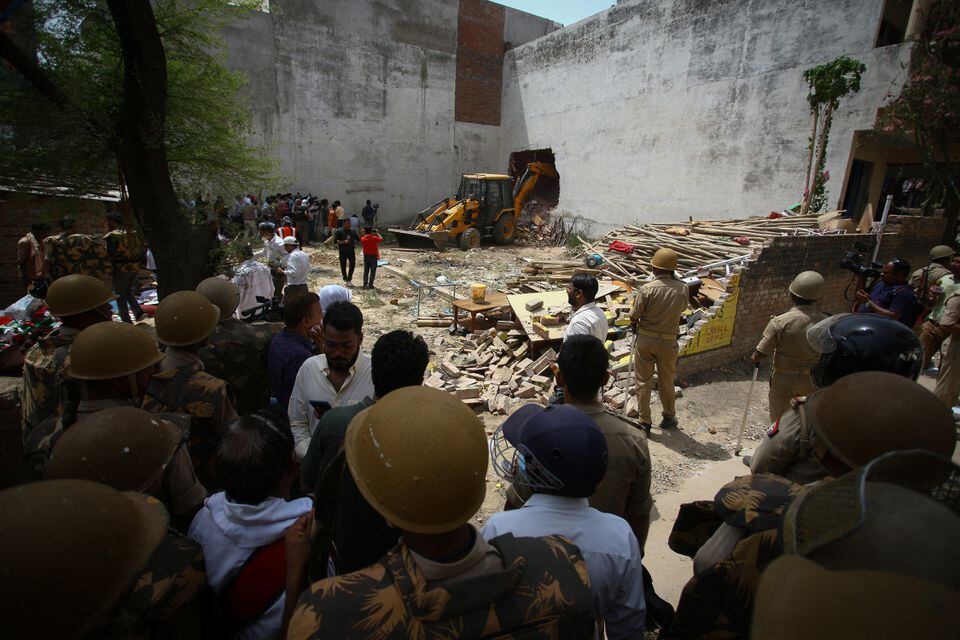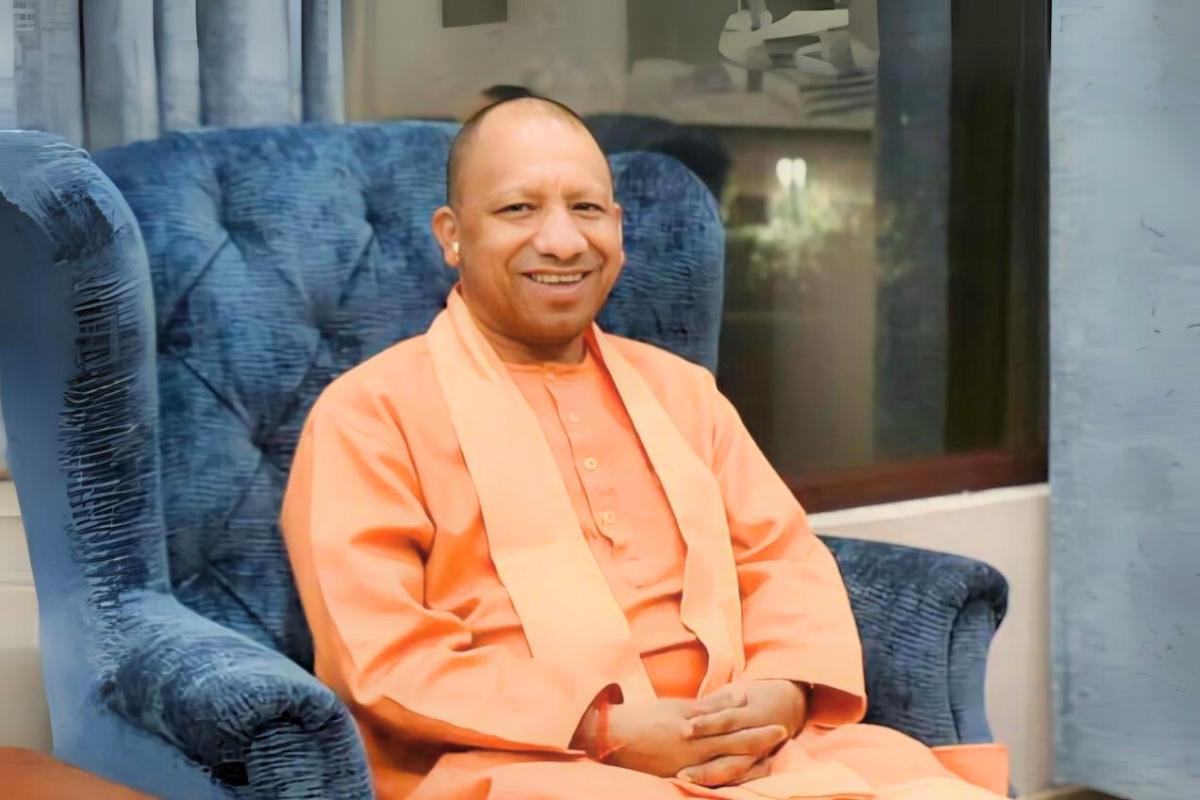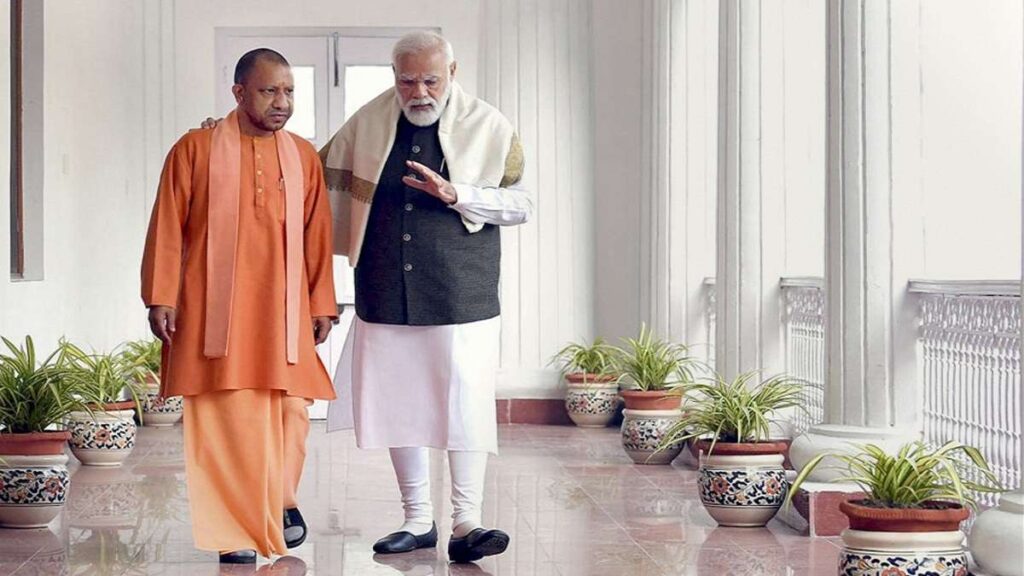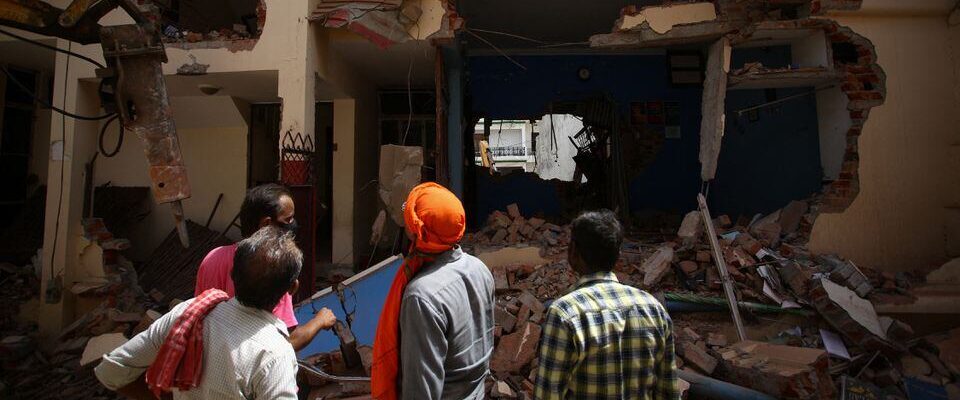Uttar Pradesh (India), home to over 200 million people, plays a crucial role in shaping India’s political landscape. The state has experienced instances of political violence that go beyond the regular democratic contestations under the Yogi regime. The term “Politicide” is used to describe the deliberate targeting and elimination of political opponents, activists, or individuals associated with political ideologies. This Article aims to shed light on the concerns surrounding politicide in UP, particularly focusing on instances where political opponents’ houses & businesses were extra-judicial demolished under Yogi Adityanath’s leadership.
Yogi Adityanath, widely regarded as one of the second most influential leaders within the Bharatiya Janata Party (BJP), following PM Modi, took the chair of Chief Minister of Uttar Pradesh in 2017 with a visionary commitment to foster a cultural and religious identity rooted in the narrative of “Ram Rajya“(A theocratic State of Hindu Lord Ram).
His tenure has also been marked by several controversies and allegations of serious human rights violations, especially against the minority Muslim community and the opposition parties. One of the most striking examples of politicide in UP is the bulldozing of public properties belonging to those accused of involvement in riots, protests, or other forms of dissent.
According to some reports, the state government has destroyed over 100 houses since 2017, without following due process of law or providing adequate compensation to the owners
A notable instance of house demolition occurred in January 2020, when the state government razed the houses of 13 people accused of participating in anti-Citizenship Amendment Act (CAA) protests in Rampur. The government claimed that the houses were built on encroached land and that the owners had failed to produce valid documents to prove their ownership. However, some of the owners alleged that they had been living in the houses for decades and had all the necessary papers to prove their legal status.

The chief minister then ordered the authorities to bulldoze the houses and shops of the accused, claiming that they had been illegally constructed on government land. The demolition drive sparked outrage and criticism from human rights activists, civil society groups, and opposition leaders, who accused the government of targeting the Muslim community and violating their constitutional rights.
There is currently no criminal statutory provision in India that mandates the demolition of an offender’s home as a punishment for any offense.
In the case of Destruction of Public & Private Properties vs. State of A.P. & Ors. (2009) the Supreme Court issued some guidelines for the states to follow to assess damages and compensation when dealing with property destruction caused by protesters or processions. According to these guidelines, the HC can appoint a judge to estimate the damages and identify the liable parties, which include both the offenders and the organizers of the event. The court can also impose extra damages up to twice the amount of the actual damages. So utterly, no law permits the demolition of an offender’s home as a form of punishment in India!
The practice of house demolition as a punitive measure has been widely condemned by national and international human rights organizations, such as Amnesty International, Human Rights Watch, and the United Nations. They have argued that the demolition violates the right to adequate housing, the right to a fair trial, the right to privacy, and the right to freedom of expression and assembly.

Destruction of civilian houses can be considered a form of Genocide if it is done with the intent of Politicide, that, is if the purpose of destroying the houses is to eradicate a political group or movement.
As mentioned earlier, Politicide is the deliberate physical elimination of a group of people because of their political affiliation or ideology. It differs from genocide in that the targeted group is defined by their political affiliation or ideology, rather than their identity. This happens in situations of Political conflict where the government or another armed actor targets the houses of its political opponents or dissidents as a way of intimidating, punishing, or displacing them. Some examples of house demolition as a form of genocide with the intent of politicide are:
- The demolition of houses by the Khmer Rouge in Cambodia, as part of their radical communist revolution killed millions of people, especially those who were perceived as enemies of the regime, such as intellectuals, professionals, ethnic minorities, and religious groups.
- The demolition of houses by the Israeli military in the Occupied Palestinian Territories, as part of their policy of collective punishment and deterrence against Palestinians who are accused of involvement in terrorism or resistance activities. The demolition of houses also serves to facilitate the expansion of Israeli settlements and the annexation of Palestinian land.
- The demolition of houses by the Syrian government in areas that were controlled by the opposition forces during the civil war, as part of their strategy of siege, starvation, and displacement of the civilian population. The demolition of houses also aimed to prevent the return of the displaced people and to alter the demographic composition of the country.
By demolishing the properties, the perpetrator not only deprives the victims of their right to adequate housing, but also aims to destroy their identity, culture, and social ties. Both Genocide and Politicide are considered crimes against humanity and violations of International Human Rights.
Has there been any politicide in Uttar Pradesh, India?
“Based on circumstantial evidence, I can say, Yes, politicide occurred in Uttar Pradesh! However, there is no definitive answer to this, because the Yogi’s men have destroyed much evidence apart from houses” said Dr. Kok-Thay, a research fellow at the Cambodian Institute for Peace and Development (CIPD). “Damaging evidence is another serious offense” – he added later.
Mr. Jagat Singh, a prominent Advocate from Bengaluru outlined on Quora that “If CM order is violating the Indian Constitution and causes any direct harm to the general public, then only can anyone approach to court for quashing the CM order.”

Recently, at the inauguration of the Ram temple built in Ayodhya, India, Prime Minister Narendra Modi was seen walking together with Mr. Yogi. In his speech at the inauguration of the Ram temple, Mr. Modi said “Ram se Rashtra” (A theocratic Nation of Lord Ram), the journey of establishment began. And this Ram Rashtra is actually the Ram Rajya 2.0 version of the narrative introduced by Yogi back in 2017.
When journalists drew the attention of PM Narendra Modi to the destructive activities and malpractices of Yogi Adityanath, he remained silent as always.


What is mess happening in UP! Shame!
So there is no direct evidence of politicide in up?
It’s hard to come by knowledgeable people for this subject, but you seem like you know what you’re talking about!
Thanks
Keep this going please, great job!
Hey I am so thrilled I found your blog, I really found you by mistake, while I was browsing on Yahoo for something else, Nonetheless I am
here now and would just like to say thank you for a remarkable post and a all round entertaining
blog (I also love the theme/design), I don’t have time to
browse it all at the minute but I have book-marked it and also added in your RSS feeds, so when I have
time I will be back to read more, Please do keep up the superb work.
I have been exploring for a bit for any high quality articles or
weblog posts in this sort of house . Exploring in Yahoo I ultimately stumbled upon this web site.
Reading this information So i am glad to show that I have an incredibly excellent uncanny feeling I discovered exactly what
I needed. I most definitely will make certain to don?t
overlook this web site and provides it a look on a continuing basis.